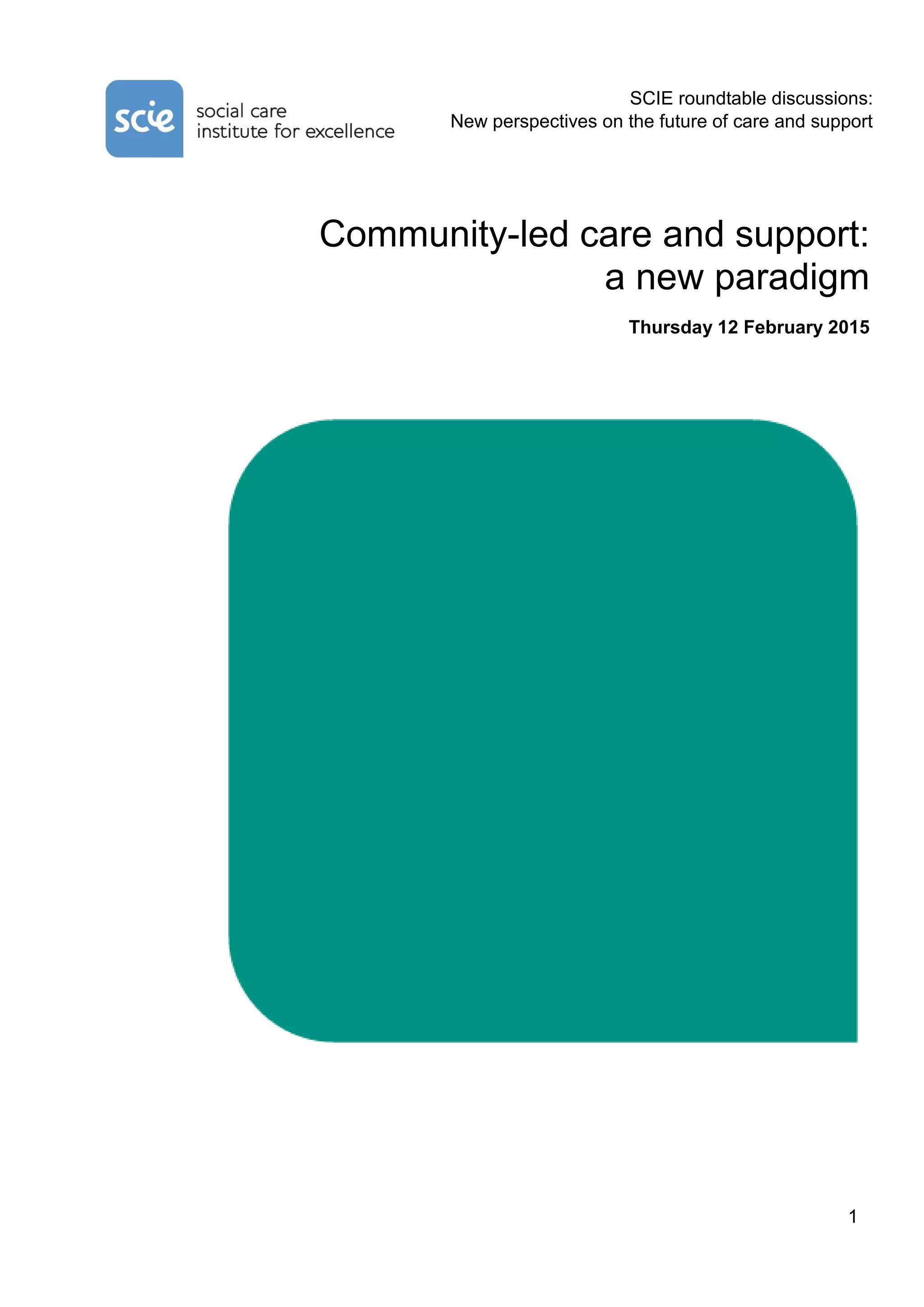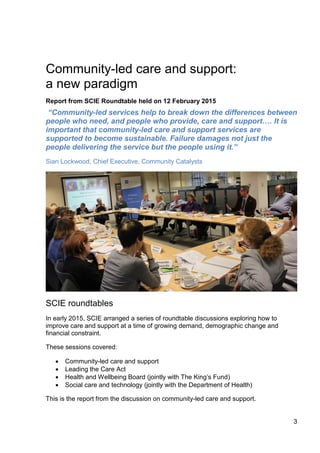The document summarizes a roundtable discussion held by the Social Care Institute for Excellence (SCIE) on community-led care and support. Some of the key points made at the discussion include:
1) Community-led services help break down differences between those who need support and those who provide it.
2) However, community groups face barriers like complex regulations and funding. Sustaining small, local services is challenging.
3) Statutory services must shift their focus from protecting traditional systems to commissioning for outcomes and building trust with local communities.














